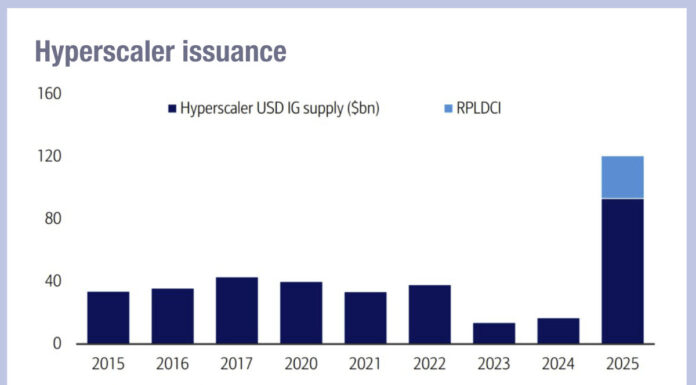New executive orders signed by US president, Donald Trump, have given him oversight of all US financial regulation, outside of monetary policy, while also setting a deregulatory agenda.
The first order, entitled ‘Ensuring Accountability for All Agencies’, signed on 18 February 2025, decries the lack of accountability to the President “and through him, to the American people” of “so-called ‘independent regulatory agencies’”.
It also notes that the agencies have been permitted to “promulgate significant regulations without review by the President.”
“These practices undermine such regulatory agencies’ accountability to the American people and prevent a unified and coherent execution of Federal law,” he writes. “For the Federal Government to be truly accountable to the American people, officials who wield vast executive power must be supervised and controlled by the people’s elected President.”
The order imposes presidential supervision and control of the entire executive branch with all executive departments and agencies which includes independent agencies such as the Securities and Exchanges Commission (SEC) and Commodity Futures Trading Commission (CFTC), and the Board of Governors of the Federal Reserve System in connection with its conduct and authority directly related to supervision and regulation of financial institutions.
An SEC spokesperson declined to comment on the new order.
It explicitly notes that “proposed and final significant regulatory actions” will now be subject to review by the Office of Information and Regulatory Affairs (OIRA) within the Executive Office of the President before publication in the Federal Register.
The CFTC was created by the Commodity Futures Trading Commission Act of 1974, and the SEC via the Securities Exchange Act of 1934, and collectively with the Federal Reserve System’s oversight of the US Treasury market, these provide oversight of securities, listed futures, swaps, and municipal and government bond trading, through supervision of exchanges, broker-dealers, alternative trading systems and the Municipal Securities Rulemaking Board.
Monetary policy as set by the US Federal Reserve System is explicitly excluded from the order.
In addition to the use of OIRA to filter new regulations, the Director of the Office of Management and Budget (OMB) is tasked with providing guidance on the implementation of the order agency heads, submitting any new regulatory actions under section 3(b) of Executive Order 12866.
“Agency submissions by independent regulatory agencies under such section shall commence within the earlier of 60 days from the date of this order, or completion of such implementation guidance,” the order says.
Regulatory independence
The value of regulatory independence from politic supervision is supported across developed markets, with a 2020 working paper from Bank of England and Brown University authors finding that regulatory and supervisory independence is associated with a significant improvement in financial stability.
“Following a reform that increases independence, banks hold less [sic] non-performing loans,” wrote authors Nicolò Fraccaroli, Rhiannon Sowerbutts and Andrew Whitworth. “This relationship holds for both large and small banks and for diferent specifcations of the baseline model.”
The analysis was made by assessing non-performing loans and the volatility of returns on assets, as measures of bank risk-taking, serves as an alternative proxy of financial instability.
“After a reform increasing independence, bank risk-taking is significantly lower,” they found. “Moreover, we show that the benefit of independence for financial stability does not come at the cost of lower bank efficiency and profitability. Reforms in independence are associated with an improvement in bank efficiency and have no effect on bank profitability. However, we notice that independence leads to a decrease in bank lending, suggesting that more independent agencies might adopt a more stringent approach.”
However analysis by Bank of America suggests a “growth-positive” component from deregulation, via cost cutting and efficiency gains.
“Industries that presumably stand to gain most are those that are most regulated,” wrote its equity and quant strategy team. “But these groups consumer sectors, large banks, commodities sectors, transports and capital goods – trade at steep discounts to reg-lite Tech, TMT and Consumer & Professional Services. We find a strong inverse relationship between the number of regulations (source: QuantGov) and forward P/E ratios – i.e., more expensive = less regulated.”
Deregulatory agenda
The second order, written as ‘ECEXUTIVE ORDER’ on 19 February 2025, entitled, ‘Ensuring lawful governance and implementing the president’s “Department of Government Efficiency” deregulatory initiative’, announced the rescinding of ‘Unlawful Regulations and Regulations That Undermine the National Interest’.
This order requires agency heads to begin reviewing all regulations subject to their sole or joint jurisdiction for consistency with law and US administration policy, working with team leads assigned from the US Department of Government Efficiency (DOGE) Service Temporary Organization, and the director of the Office of Management and Budget.
They must then identify any rules that they or the Attorney General notes might:
- Be constitutionally difficult;
- Have unlawful delegations of legislative power;
- Are not based on ‘best reading’ of the underlying statutory authority;
- Implicate matters of social, political, or economic significance that are not authorised by clear statutory authority;
- Impose significant costs upon private parties that are not outweighed by public benefits;
- Hurt national interest by impairing a range of issues including technological innovation; economic development; energy production; and foreign policy objectives;
- Regulations that impose undue burdens on small business and impede private enterprise and entrepreneurship.
By mid-April the lists of regulations are expected to be established and passed over for review. The administrator of OIRA will then consult with agency heads to develop a ‘Unified Regulatory Agenda’ that seeks to rescind or modify these regulations, as deemed appropriate.
Agencies are also required to de-prioritise actions enforcing regulations based on anything other than the ‘best reading’ of a statute and de-prioritising actions enforcing regulations that go ‘beyond the powers vested in the Federal Government by the Constitution’, with a review of any ongoing actions.
©Markets Media Europe 2025













